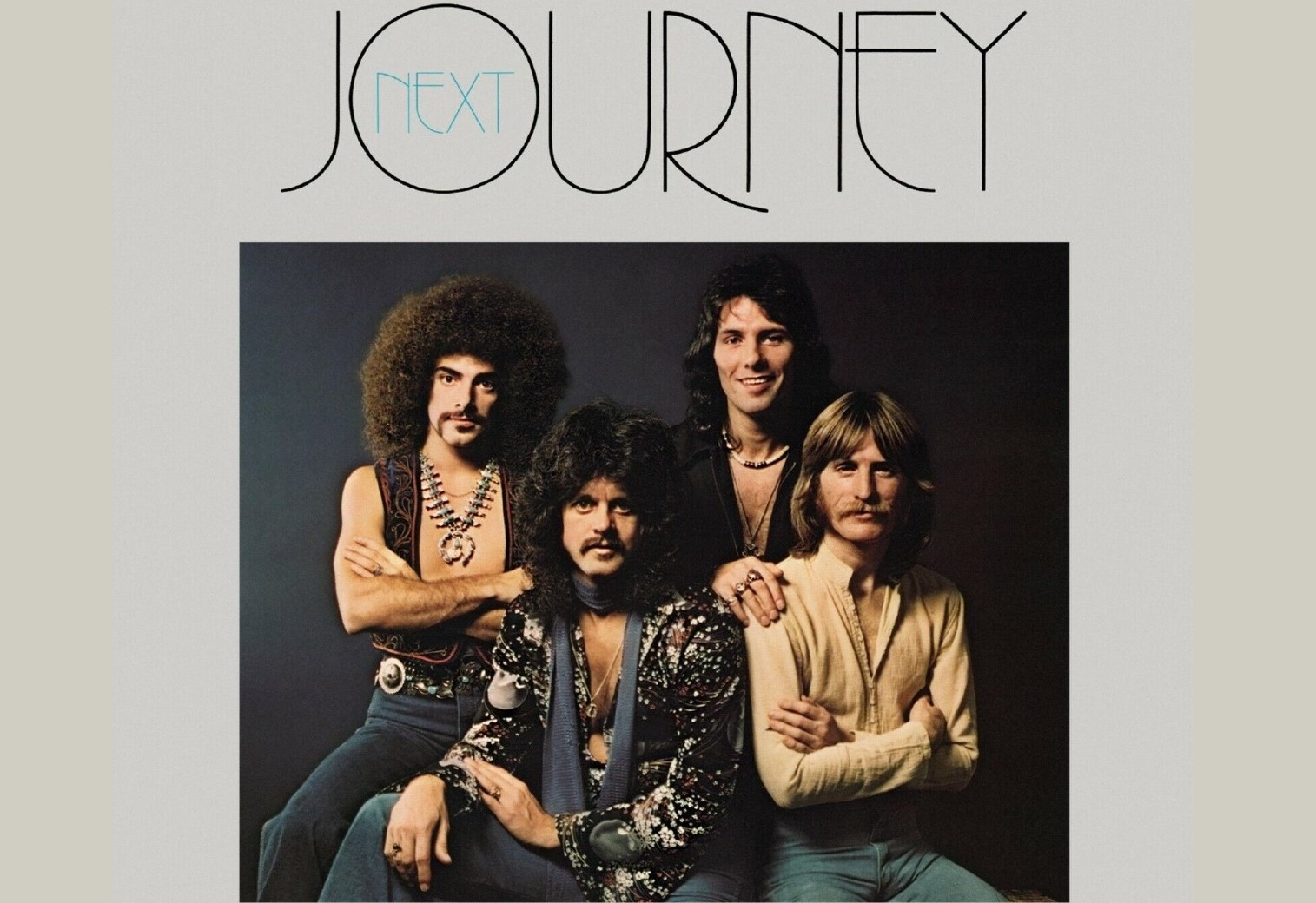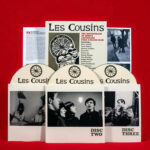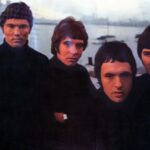
David Hamilton Golland, author of Livin’ Just to Find Emotion: Journey and the Story of American Rock, curates a list of five great tracks from each of Journey’s 1970s albums, presented in reverse-chronological order.
“Lovin, Touchin,’ Squeezin’” from Evolution (1979)
This blues tune by Steve Perry, destined to be the group’s first bona fide top twenty hit, begins with a strong bass line, joined with piano at just the right moments. The lyrics, inspired by Sam Cooke’s “Nothin’ Can Change This Love,” develop a story about a jilted lover who predicts that the former partner will soon likewise be jilted. The final minute is a harmonized wagging finger: “na na na na na,” repeated ad nauseam: either the most obtuse or the most brilliant creation in Journey’s musical development. Whatever. The song rose to #16 on the Billboard Hot 100.
“Winds of March” from Infinity (1978)
Written by guitarist Neal Schon, his father Matthew, onetime lead singer Robert Fleischman, organist Gregg Rolie, and Steve Perry, this song has a similar structure to “Suite Madame Blue” by Styx. It begins with an acoustic guitar sea shanty for nearly a full minute of intro. Drummer Aynsley Dunbar’s airstrip sonics lead to Perry’s light, airy vocals. There are some neat drum effects here, and Perry adds an operatic touch. Then, with a rather subdued solo, guitarist Schon takes us into an instrumental hard rock portion. Rolie joins in with organ, trading solos with Schon. In the final minute they come together and return to the vocals, ending with an unexpected tenderness.
“Spaceman” from Next (1977)
Written by drummer Aynsley Dunbar and organist Gregg Rolie, this song begins the album with piano and drums, soon joined by guitar. Rolie sings a cool, laid-back vocal on this jazz-inspired rock tune. The lyric, punctuated by a brief guitar lick between verses, is a response to critics calling the group’s musical style “heavy space.” There are very subtle backup vocals. The intensity of the music is teasing, building up and pulling back. Neal Schon’s guitar solo is clean and clear, and Rolie sings to the guitar in the final notes.
“It’s All Too Much” from Look into the Future (1976)
Journey delivers a frenetic and guitar-heavy take in this cover of the Beatles’ song by George Harrison, far less psychedelic than the original and two minutes shorter, with abbreviated lyrics, no tambourine or cymbals, and a vocal whoop in the intro. This version would have been wrong for Yellow Submarine but is perfect on Look into the Future. It concludes with the title refrain played backwards, a nod to the urban legend that if one plays the final bars of the Beatles’ “I’m So Tired” backwards it sounds like they are saying “Paul is dead, miss him, miss him, miss him.”
“Mystery Mountain” from Journey (1975)
This jazz-fusion exploration, written by organist Gregg Rolie, second guitarist George Tickner, and bassist Ross Valory’s wife Diane, has a radio-friendly length at about four minutes. It provides a danceable, hard rock tune to close out the band’s first album. Rolie, on lead vocals, emits a whoop as the intro moves into the theme. The lyrics evoke the eruption of a previously dormant volcano, an apt metaphor for the band, as Rolie and Tickner emerge from musical dormancy to create explosive rock music, and eerily prescient of the unexpected 1980 explosion of Mount St. Helens in Rolie’s native Washington State. The song includes a complex guitar solo for Neal Schon while Valory’s bass line is entrusted with the theme.
Further information
David Hamilton Golland: Livin’ Just to Find Emotion: Journey and the Story of American Rock (Rowman & Littlefield, 2024)




I’m glad you picked earlier Journey songs. I loved their first two progressive albums and managed to see them live in the mid ’70s. Those two albums have to be played LOUD. I wasn’t too crazy about their turn to anthem arena rock. But there’s not much you can say about every cover band in the world playing “Don’t Stop Believin’.”